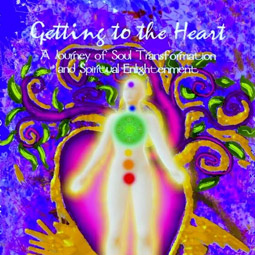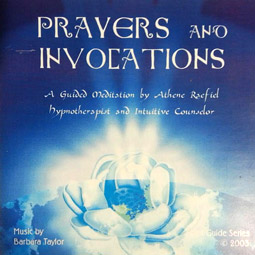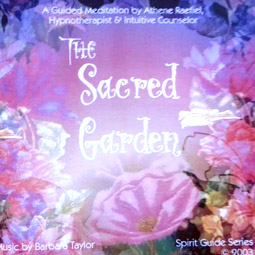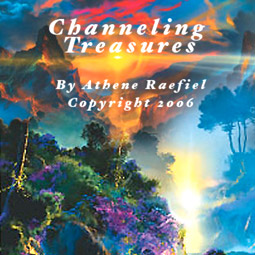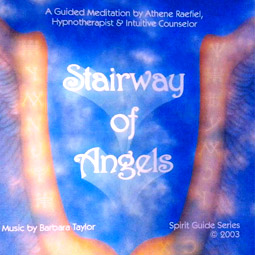 Table of Contents
Table of Contents
Message from the Author
PART I – UNDERSTANDING SOUL
Getting to the Heart
The Soul’s Journey
The Astral Realm
The Child Within
Letting Go
Our Conditioning
The Spiritual Quest Begins
Changing Realities
Morality and Religion Meditation
Initiation
Self-realization
Enlightenment
PART II – WORKBOOK
The Workbook
Creating a Sacred Space
Invocations and prayers
What is processing?
What Are Chakras?
Forgiveness
Self – Dialogue
Visualization: A Key to Awareness
About the Author
Suggested Reading
Glossary
Getting to the Heart Excerpt 1
Letting Go
We have been taught to believe, that letting go means to push away or suppress. However, true letting go is a process of integration and healing.
Letting go can be a misleading statement because it gives the impression of separation. By integrating a situation that involves you, another person, or a circumstance in life, means to come to terms with it. We can only come to terms with something when we understand it. When we understand the purpose of our life experiences we are able to accept them, thereby releasing our emotional attachment. Learning to embrace our issues in this way allows us to take them within ourselves and integrate them.
Once our emotions are understood and integrated our judgments about ourselves and others begin to dissolve. Where there is clarity and understanding, problems can not germinate.
What we see on the outside of ourselves is a reflection of what is happening on the inside. Interacting with others is always a way of interacting with ourself. When interaction brings up feelings within us that we do not like, we should search inside to see why this is occurring. We should view others in our lives as our mirrors.
Many people distance and isolate themselves from others, creating emotional isolation.
Finding ourselves disoriented and disorganized, using the outside as a reflection of the inside, shows we are feeling how on the inside?
Realizing that you are the only true problem in your life allows you to realize the truth of who you are. Only through self-examination can emotions and feelings be healed and problems solved.
Our habits accepted beliefs and behaviors-our inner walls-all play a part in who we are. Take for example, the critical part of our self, which loves to run rampant. This part of self is continually judging and criticizing self and others. This behavior can become quite destructive. It often leads to an out-of-balance, superhuman, perfectionist complex. It has become the norm to single out what is imperfect about another or oneself rather than identifying what is unique and special. This commonly leads to pettiness and competition.
We find it is much easier to accept others when we like and accept ourselves. Being critical and judgmental are roadblocks in the path of learning to love.
We can require that others honor us in the same way that we honor our self by treating them as we wish to be treated. As we become honest with ourselves and reflect our own attitudes and actions, we see the mirrors that others play in our life.
Getting to the Heart Excerpt 2
Forgiveness
The past, present, and future exist within one another. They are interconnected within us and are what make up the picture of ourselves and life. We cannot leave behind the past simply “not thinking “about it. We believe we can put something out of our mind by stuffing the emotion of it deep inside somewhere. Stuffing our emotions year after year can cause one to feel alienated and distant. It’s all right to put our feelings on the back burner for a little while but too often we forget to bring them back to the foreground. We can now lose perspective on how others around us might be feeling as well.
How well we process and understand our feelings determines our emotional health. Due to the emotional distress most individuals have suffered in their lives they believe themselves unable to trust their feeling self.
When we push the emotions deep into the recesses of our being we isolate and insulate, losing our ability to deal with the intimate emotional situations in our personal lives. This in turn causes us loss in our ability to use logic and reason to resolve emotional situations in our lives.
In order to achieve good health or peace of mind it is necessary for us to bring our emotions into balance with our reason. Denying how we feel about different situations in our lives can be very self-destructive. We think and have been shown that by stuffing our emotions they will go away. In truth the emotions then simply lie beneath the surface smoldering, waiting for an opportunity to emerge. Unexpressed and repressed emotions will eventually find a way of showing themselves. They can cause an angry explosion, an unexpected show of emotion like yelling or crying for no apparent reason. Mood swings, suicidal or homicidal thoughts; depression, anxiety, stress, uncontrollable laughter and crying. Most people believe they are manic or mentally ill when in reality they simply need to acknowledge and integrate all the past memories and feelings associated with them.
Often repressed emotions manifest themselves through physical illness, such as heart disease, arthritis, obesity, cancer, diabetes and so many other imbalances. Sometimes the result of repressed emotions is terminal illness and death.
Forgiveness is the most powerful tool we have for dealing with repressed emotions. We all feel victimized by the seeming injustices that take place in our lives. Few of us know how to react to or process these feelings.
By learning to forgive yourself, other people, and the circumstances that have occurred in life, your experience of life becomes transformed. This transformation takes place not by us paying lip service to forgiving but by seriously delving within ourselves to admit that we are the one who has been repressing our emotions. We must each make a conscious effort to do whatever it takes to make peace with ourselves and the past.
If you carry a feeling of hatred around inside of yourself for twenty years or so, it eats away at you daily; not the others you believe you hate. By harboring this intense feeling of hatred, you begin to attract others into your life who are nursing the same problem. Together, you now feed off of each other’s hatred and begin finding fault with one another. This happens because like energy attracts and sooner or later you will find a reason to hate everyone you come in contact with. When we feel victimized by life and hold onto this emotional energy, we then attract other people into our lives who also are victims. By feeding off of each other’s emotional energy we eventually become one anothers victims. This is the law of universal attraction in action.
Some people feel it is easier to forgive another person for a wrongdoing than it is to forgive their self, while others find it easier to forgive their self. True emotional healing can take place only when we are willing to forgive both the others involved and ourself. We cannot only tell ourselves that we forgive; we must know that we have forgiven through the balance in our feelings.

